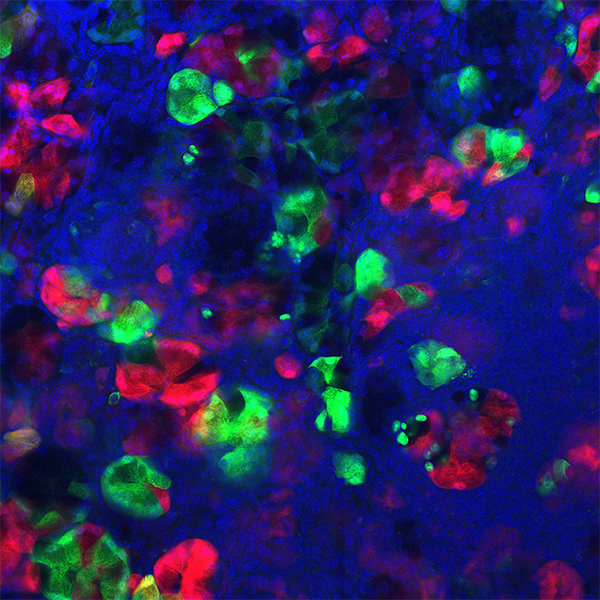Pancreatic Cancer is a devastating disease with an abysmal survival rate. This is largely due to late diagnosis and a lack of understanding of the early events leading to tumor formation. Our laboratory uses a combination of histopathology, genetically engineered mouse models, small cell number RNA-sequencing, and ultrastructural microscopy to uncover early changes in the pancreas leading to cancer. We have discovered a surprising amount of epithelial heterogeneity in the pancreas in response to injury and/or oncogenic mutation, including the formation of a number of different secretory cell populations, including tuft cells. We are studying the physiological role of metaplasia-derived secretory cell populations in injury, pre-invasive disease and tumorigenesis. Our ultimate goal is to exploit anti-tumorigenic signaling or target pro-tumorigenic signaling pathways for patient benefit.
